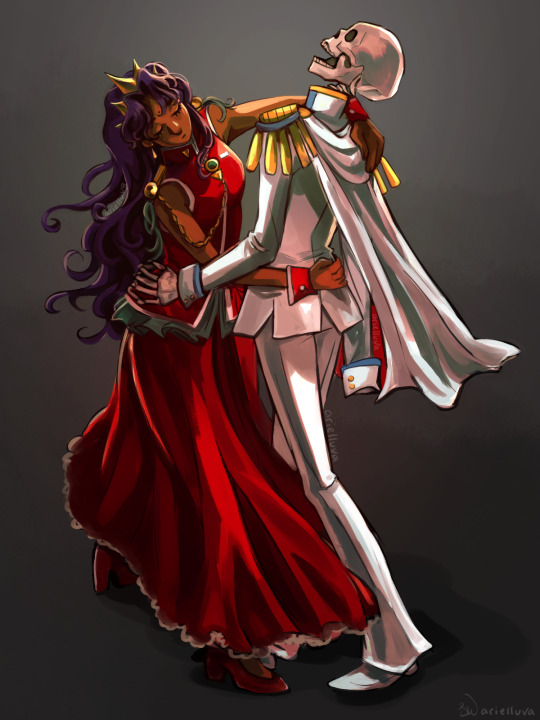Don't wanna be here? Send us removal request.
Text

And someday, together, we'll shine
56 notes
·
View notes
Text

I thought of this immediately after seeing the scene
48 notes
·
View notes
Text




Episode 33 vs. Adolescence of Utena
150 notes
·
View notes
Text
Regarding this whole terrible take about Anthy being Akio's "enabler", I think it's very worth talking about how being forced to become your abuser's "accomplice" is really just another form of abuse and makes escaping even more difficult once you come to believe you are no longer deserving of safety and compassion.
325 notes
·
View notes
Text


old utenas from my sketchbook
253 notes
·
View notes
Text

anthy's awesome gardening tips
592 notes
·
View notes
Text
what will it be, boss? the comfort of misery or the pain of change?
73K notes
·
View notes
Note
hey!! i have it in my head somehow that the shot of shiori in adolescence where she is a moth/butterfly is a reference to a painting but for the life of me i can't find any info on it. i googled and googled, browsed utena blogs up and down and looked through so many tags 😭 i figured if anyone would know you would?? no problem if not, have a great day 🩷
no sorry, i don't think i know it if it is. but maybe one of my followers does?
7 notes
·
View notes
Text


something something The Prince kisses away Utena's tears something something the tears are what save Anthy in the end
385 notes
·
View notes
Note
saw a post tht said anthy's cowardice makes her complicit in her abuse & i was speechless for a bit... & how abusive systems are held not only by abusers but also by ppl who are hurt by it who refuse to try... i'm living in abusive environment myself so this ticked me off lol. i mean... abuse and grooming will condition the victim to accept the suffering theyre subject to than taking a chance at an escape. abuse and grooming make a victim a coward. to say anthy's cowardice makes her complicit in her hurt is victim blaming. many ppl don't know how deep the psychological impacts of abuse are... i'm not infantilizing. these are facts. we victims may die trying to even have hope... we need some help too. we can't do it on our own. we know there are better things than abuse but the mere uncertainty is enough to scare us off. we cling to familiarity. self sabotage. sorry for the rant this is just something so personal to me
it is a deeply annoying post (as are all the others from that person) because they're acting like they're analyzing depth to anthy's character that nobody else ever talks about (untrue) but they just. aren't. like even if it is technically true that anthy is a coward who is complicit in perpetuating this cycle of abuse, you can't just end the conversation there. you gotta ask why this is. why is she so afraid of change? why is it so impossible for her to see an alternative to the way things are? you gotta look at the context of it all. the fact that she is a child, and that you can't hold her to the expectation of breaking this entire system by herself (even though, in a way, she does). and perhaps most importantly, that the main person anthy is hurting with her complicity is... herself. it is deeply unserious to say that anthy "faces no consequences" for her actions when consequences are all she ever gets. like what else do you want to happen to her?? why do you feel like she deserves to suffer, and how would it help anyone? anthy's suffering is precisely what keeps her complicit in the first place, and literally what the entire system is built on. you can't be like "wow she did all that and she just gets to walk away at the end??" when her leaving is the biggest step to making things right both for herself and for the people she hurt/helped akio hurt. do you really think the point should have been that she needs to stay in her coffin forever and, what, repent for her sins?? and just the idea that a narrative needs to punish every single action someone makes accordingly (what does that even mean) is very silly. that is not how the world works. people don't always get what they "deserve" and what they deserve is, clearly, very subjective anyway. whatever, i'm just rambling too now.
58 notes
·
View notes
Text



Did you hear? Did you hear? You were a real girl all along!
2K notes
·
View notes
Text

For the revolution of the world!! 💪✨🏳️⚧️
378 notes
·
View notes
Text
heartwarming: found family just as oppressive as real one
3K notes
·
View notes
Text
found family abolition
2K notes
·
View notes
Text

what about our promise?
506 notes
·
View notes
Text

thing i drew while we were stuck in traffic
450 notes
·
View notes
